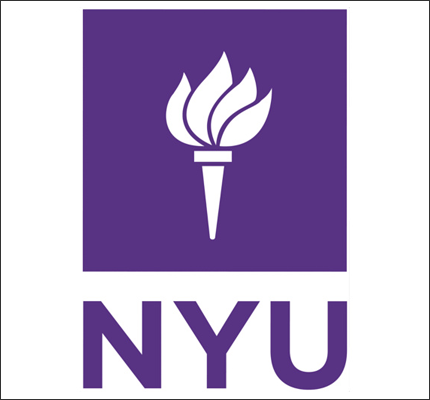New York University, Department of Media, Culture & Communication

overview of program
Several guiding principles shape the creative and critical intellectual projects of the Department of Media, Culture, & Communication at New York University, whether expressed in research, teaching, or mentoring: 1) A commitment to interdisciplinarity in the study of media and culture. Scholars and doctoral students in the department engage with theoretical concepts and perspectives from a range of academic disciplines and fields of study, including media studies, cultural studies, communication, media history, visual culture, sound studies, anthropology, sociology, political science, and so on, in order to deploy interdisciplinary strategies of analysis. Our approach is based on the principle that the most challenging questions of our times, in relation to the study of media, technology, and culture, cannot be examined from the perspective of any single academic discipline; 2) A multi-methodological approach that draws on a diverse array of research methods in media and cultural analysis, including audience studies, semiotics, ethnography, discourse analysis, political/cultural economy, content analysis, and other interpretive and critical approaches; 3) A historical perspective that situates the study of media, technology, and culture within historical contexts, comparative historical research, media archaeology, genealogy, and media history; and 4) A global, comparative approach in relation to cultural differences, media forms, historical frameworks, and theoretical paradigms.
Association of American Universities Member
Carnegie “Doctoral University: Very High Research Activity”
Communication doctorates conferred between 2010-19: 63
Contact information
Dr. Susan Murray
Department of Media, Culture, and Communication
239 Greene Street, 8th Floor
New York, NY 10003
- Critical Theories of Media & Communication
- Global & Transcultural Studies
- Media Institutions & Politics
- Technology & Society
- Visual Culture & Sound Studies
QS World University Rankings—Communication & Media Studies
- #16 of 200 World Universities (tie for #16)
URAP University Rankings—Language, Communication & Culture
- #17 of 300 World Universities
- The application form and fee (major code: MCCD).
- A brief essay (2 – 3 pages single-spaced or 4 – 5 pages double-spaced) on the research area/topic you expect to pursue, your background preparation for advanced work in that area/topic, and some of the scholars whose work in that area has shaped your thinking (this is the statement of purpose/personal statement).
- A copy of your Master’s thesis, or comparable evidence of sustained intellectual inquiry/writing you have done, preferably in the area in which you expect to focus your advanced study.
- Three letters of recommendation from persons in a position to assess your qualifications for advanced study and research.
- A résumé of your academic and professional experience.
- Transcripts.
- GRE scores (General Test, institution code 2556, no departmental code required).
- English Profeciency Test Scores
- Professor Arjun Appadurai, Ph.D., University of Chicago
- Professor Rodney Benson, Ph.D., University of California
- Professor Deborah Borisoff, Ph.D., New York University
- Assistant Professor Finn Brunton, Ph.D., University of Aberdeen
- Associate Professor Paula Chakravartty, Ph.D., University of Wisconsin
- Associate Professor Lily Hope Chumley, Ph.D., University of Chicago
- Professor Stephen Duncombe, Ph.D., City University of New York
- Professor Allen Feldman, Ph.D., New School for Social Research
- Professor Alexander Galloway, Ph.D., Duke University
- Associate Professor Brett Gary, Ph.D., University of Pennsylvania
- Professor Lisa Gitelman, Ph.D., Columbia University
- Professor Radha S. Hegde, Ph.D., Ohio State University
- Associate Professor Ben Kafka, Ph.D., Stanford University
- Associate Professor Ted Magder, Ph.D., York University
- Associate Professor Charlton McIlwain, Ph.D., University of Oklahoma
- Professor Mark Crispin Miller, Ph.D., Johns Hopkins University
- Associate Professor Mara Mills, Ph.D., Harvard University
- Professor Nicholas Mirzoeff, Ph.D., University of Warwick
- Assistant Professor Kelli Moore, Ph.D., University of California-San Diego
- Associate Professor Susan Murray, Ph.D., University of Texas
- Assistant Professor Laine Nooney, Ph.D., Stony Brook University
- Associate Professor Juan Pinon, Ph.D., Universidad Autonoma Metropolitana
- Professor Arvind Rajagopal, Ph.D., University of California
- Associate Professor Erica Robles-Anderson, Ph.D., Stanford University
- Associate Professor Martin Scherzinger, Ph.D., Columbia University
- Associate Professor Natasha Schüll, Ph.D., University of California, Berkeley
- Associate Professor Nicole Starosielski, Ph.D., University of California, Santa Barbara
- Professor Marita Sturken, Ph.D., University of California, Santa Cruz
- Associate Professor Helga Tawil-Souri, Ph.D., University of Colorado
- Assistant Professor Angela Xiao Wu, Ph.D., Northwestern University
- Assistant Professor James Wahutu, Ph.D., University of Minnesota
- Charles Woolbert Research Award, 2017